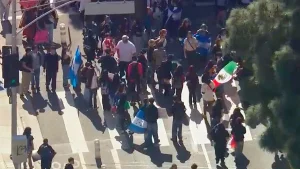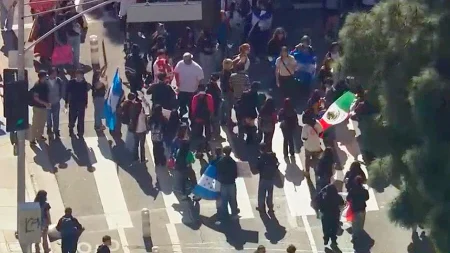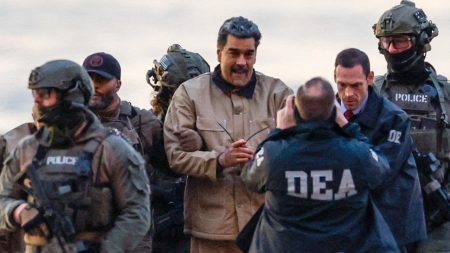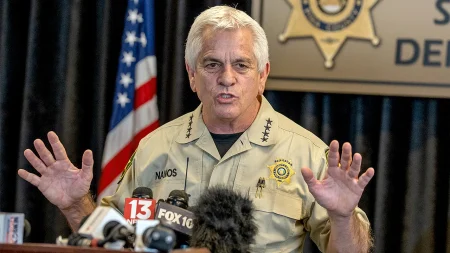Hamas Releases Bodies of Eight Hostages as Search for Remaining Captives Grows More Complex
Amid Devastation and Diplomatic Efforts, Hamas Returns Remains While Citing Challenges in Locating Others
In a somber development in the ongoing Middle East conflict, Hamas officials have transferred the bodies of eight hostages to international authorities, while simultaneously acknowledging significant difficulties in locating the remains of other captives amid Gaza’s war-ravaged landscape. The militant group’s announcement comes nearly two years into a conflict that has transformed much of the Gaza Strip into rubble, complicating search and recovery efforts for those still missing in the densely populated coastal enclave.
The handover, facilitated through intermediaries, represents both a painful closure for some families and a stark reminder of the human toll this protracted conflict continues to exact. Authorities have begun the process of identifying the remains and notifying families, though officials have requested privacy during this difficult period. “These moments represent the most agonizing part of our work,” said one international mediator involved in the negotiations, speaking on condition of anonymity due to the sensitivity of ongoing talks. “Each recovery brings closure to grieving families, but also underscores the urgency of resolving the status of all those still unaccounted for.”
Search Efforts Hampered by Widespread Destruction and Displacement
Hamas representatives claim that intensive efforts to locate additional remains have been severely hampered by the widespread destruction throughout Gaza, where entire neighborhoods have been reduced to unrecognizable landscapes of concrete and twisted metal. “The systematic bombardment and ground operations have altered the topography of entire districts,” explained Dr. Elena Martins, a conflict zone recovery specialist who has worked in multiple war zones. “Recovery teams face extraordinary challenges when landmarks no longer exist, when buildings that once housed captives have been demolished, and when the population that might provide information has been repeatedly displaced.”
The scale of destruction in Gaza presents unprecedented challenges for such recovery operations. Satellite imagery analyzed by international monitoring organizations shows that approximately 65% of Gaza’s infrastructure has sustained significant damage or been completely destroyed since the conflict’s inception. This physical devastation is compounded by severe limitations on movement, fragmented communication networks, and the dispersal of local populations who might otherwise provide crucial information about hostage locations. Hamas officials claim these conditions have created nearly insurmountable obstacles to their search efforts, though some international observers question whether all possible resources are being dedicated to recovering the missing.
Families of the Missing Face Continued Uncertainty
For families of those still unaccounted for, the return of some remains while others remain missing creates a complex emotional landscape of grief, hope, and frustration. Support organizations working with these families report that the uncertainty of not knowing a loved one’s fate often compounds trauma and prevents the natural grieving process from unfolding. “The ambiguity is perhaps the cruelest aspect,” said Sarah Levinson, director of a hostage family support network. “Families exist in a state of suspended animation – unable to fully grieve, yet forced to confront increasingly difficult realities as time passes.”
Psychological experts specializing in conflict-related trauma note that this form of ambiguous loss creates unique challenges for mental health support. “When there’s no confirmation of death, but also diminishing hope for survival, families experience what we call ‘frozen grief,'” explained Dr. Jamal Ibrahim, a trauma specialist working with affected families. “The return of some remains creates both relief for certain families and renewed anguish for those still waiting.” Public health officials have documented increasing rates of depression, anxiety disorders, and post-traumatic stress among family members of the missing, highlighting the cascading health impacts of protracted hostage situations.
Diplomatic Efforts Intensify as Humanitarian Crisis Deepens
Against this backdrop, international mediators have intensified efforts to secure the release of any remaining living captives and the return of all remains. These diplomatic initiatives operate within an increasingly complex geopolitical landscape, with regional powers and global stakeholders pursuing sometimes competing agendas. “What should be fundamentally a humanitarian issue becomes entangled with strategic calculations,” noted Ambassador Caroline Westbrook, who has participated in previous hostage negotiations in the region. “Yet despite these complications, we continue to see incremental progress when all parties recognize that resolving the hostage situation serves everyone’s interests.”
Recent diplomatic breakthroughs have resulted from a combination of international pressure, economic incentives, and humanitarian appeals. Several nations have appointed special envoys dedicated exclusively to hostage negotiations, signaling the priority placed on this aspect of the broader conflict. These diplomatic channels operate alongside humanitarian organizations working to maintain basic services in Gaza, where water systems, healthcare facilities, and food distribution networks have been severely compromised. The United Nations estimates that over 80% of Gaza’s population now requires some form of humanitarian assistance, creating conditions where basic survival concerns often overshadow other priorities, including hostage recovery efforts.
Looking Forward: Reconciliation and Accountability Questions Loom
As the immediate work of identifying and returning remains continues, questions of long-term reconciliation and accountability remain largely unaddressed. International human rights organizations have documented potential violations of humanitarian law by multiple parties to the conflict, creating a complex legal landscape that will likely influence future peace efforts. “Establishing a sustainable peace requires addressing not just the immediate humanitarian crisis, but also creating mechanisms for accountability and healing,” said Justice Maria Gonzalez, a member of a UN-appointed commission investigating humanitarian law violations in the conflict.
The return of hostage remains represents one small step in what many regional experts predict will be a lengthy process of reconstruction and reconciliation. Historical patterns suggest that post-conflict recovery in the region has typically required extensive international support, sustained diplomatic engagement, and community-based healing initiatives. “What we’re witnessing now – the painstaking process of accounting for the missing – is just one element of a much larger challenge facing these societies,” observed Dr. Robert Chen, director of the Center for Post-Conflict Reconstruction. “The physical rebuilding of Gaza may prove easier than rebuilding trust between communities that have experienced such profound trauma.”
As families receive confirmation about their loved ones’ fates and begin their individual journeys of mourning, the broader work of addressing the conflict’s root causes continues in diplomatic chambers, community centers, and international forums. The recovery of these eight sets of remains, while significant for the directly affected families, represents just one chapter in a continuing narrative of loss, resilience, and the elusive search for lasting peace in one of the world’s most contested regions.










